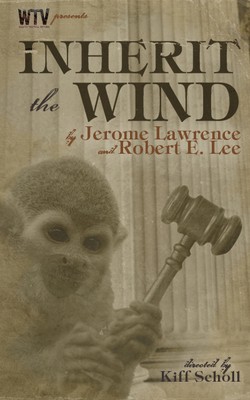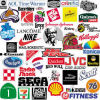 It’s Saturday, and that means it is time to clear out the links for the week. This has been a busy week, with a major recorganization (which was more of an org chart relocation) at work (means loads of “all-hands” meetings full of sound and fury, saying little), loads of documents to review, and loads of stuff to catch up on. As a result, I rarely got time to look at the news over lunch, and have only collected a few things that didn’t them. Let’s get to them:
It’s Saturday, and that means it is time to clear out the links for the week. This has been a busy week, with a major recorganization (which was more of an org chart relocation) at work (means loads of “all-hands” meetings full of sound and fury, saying little), loads of documents to review, and loads of stuff to catch up on. As a result, I rarely got time to look at the news over lunch, and have only collected a few things that didn’t them. Let’s get to them:
- The Death of XP. My RSS feeds are full of dire warnings about continuing to use XP after support stops on April 8. As it is, I have three XP machines at home: two that are just sitting, turned off, and one that is used solely as a print server. Still, I am thinking about replacing it, and two articles caught my eye. The first looks at 3 Linux alternatives to upgrading Windows–I’d seriously think about upgrading at least one to Linux if it can work as a print server on a Windows network. The second talks about how Microsoft is offering special deals of $100 for those upgrading from XP. With some Windows 8 machines in the $200-$300 range, this brings systems to the noise level.
- Challenging Coins. Two interesting articles on coins this week. The first talks about the new £1 coin Britain is introducing. It will be 12-sided, and incorporate different-colored metals, for a faux gold and silver look, instead of the mostly copper blend now in circulation, and boast a high-tech anti-forgery feature used in paper money. It looks like it is complicated to make. Even more complicated is a new domed collectable coin being made by the US Mint: a domed coin commemorating baseball. Evidently, it was very hard for the mint to manufacture, and took a bit of experimenting to get right. What’s interesting here is reading the comments — there are a large number of people who do not understand that collectable coins and stamps make the government money.
- Training For It. About a week or so, I had set aside a story about a railroad club in Orange County that had their trackage stolen, intending to send them a little something. Turns out I wasn’t the only one: the club has received thousands of dollars in donations. A nice reminder that there are a lot of good people in the world.
- Bad Design. Here are two articles about some bad designs. The first is about a new device you can slap on a milk carton–it uses nanotechnology to indicate visually if the milk is good or bad. So what’s the problem? According to the article, “red” is good, “green” is bad. This is the opposite of how red and green are nomally used in interfaces, and I predict people will get sick from the “green is good” hardwiring. The second is about golfing: it appears that titanium clubs striking rocks can create sparks that start brush fires. Perhaps they should give golf clubs to people on Survivor.
- Out of This World. I’ve had this article sitting for a few weeks, but nothing seems to want to pair with it. Baker is a dying town — once home to the largest thermometer in the world, it is now slowly fading into the desert. But the owner of Alien Jerky wants to change that — and one way is to build a flying saucer shaped hotel.
- The Jewish Valley. I’m into history. I’m into Judaism. So naturally, I’m into the history of Jews in the San Fernando Valley. Many years ago, Rabbi John Sherwood and I even toyed with the idea of writing a book on the subject. So here’s an interesting article in that vein: it explores the early days of the Valley Jewish Community Center, which became the Conservative synagogue Adat Ari El. This is the synagogue that was the parent of most Conservative synagogues in the valley, just like Temple Beth Hillel was the first Reform congregation and was essentially the parent of most Reform congregations in the valley.
- Marital Success. What makes a successful marriage? Is it your partner? It is living together before you get married to work out the problems? Is it “murder frequently, divorce never?” According to this article from Atlantic, it is being mature when you get married. An exploration of the science of cohabitation shows that the older people are when they make their long-term commitment as a couple, the more likely that couple will stay together. The study found that individuals who committed to cohabitation or marriage at the age of 18 saw a 60 percent rate of divorce. Whereas individuals who waited until 23 to commit saw a divorce rate that hovered more around 30 percent. I got married when I was 25, and next year we will have been married for 30 years. As they say, you do the math.


 One of the things I do in real life is assess risk. Humans, it turns out, are horrible at assessing risk. For example, would you rather have your child visit a home with a swimming pool, or a home that had a gun. In today’s society, most people would think the house without a gun is safe, but statistically more children are killed by swimming pools than guns in the home. There’s a greater risk in that house with the pool.
One of the things I do in real life is assess risk. Humans, it turns out, are horrible at assessing risk. For example, would you rather have your child visit a home with a swimming pool, or a home that had a gun. In today’s society, most people would think the house without a gun is safe, but statistically more children are killed by swimming pools than guns in the home. There’s a greater risk in that house with the pool. Every year on my dad’s birthday I post a remembrance that I wrote the day after he died in 2004. Today he would have been 92. As I wrote last year: As I get older, I see more and more of my father in me — and I like what I see, and I’m grateful he gave so much to me that makes me who I am.
Every year on my dad’s birthday I post a remembrance that I wrote the day after he died in 2004. Today he would have been 92. As I wrote last year: As I get older, I see more and more of my father in me — and I like what I see, and I’m grateful he gave so much to me that makes me who I am.
 If you read the news these days, you’ll see how many religious people still take the bible as the literal word of God. Don’t believe me? In 2012,
If you read the news these days, you’ll see how many religious people still take the bible as the literal word of God. Don’t believe me? In 2012,  Tonight, I went to the Purim schpiel, and realized that I’ve got a problem.
Tonight, I went to the Purim schpiel, and realized that I’ve got a problem. In my continuing question to clear off my accumulated news chum list, here is a collection of links related to technical items of olden days (like, say, when I was young 🙂 ):
In my continuing question to clear off my accumulated news chum list, here is a collection of links related to technical items of olden days (like, say, when I was young 🙂 ): Here’s another belated lunchtime post (can you tell I’m clearing out a backlog). This time, the subject is selling and marketing:
Here’s another belated lunchtime post (can you tell I’m clearing out a backlog). This time, the subject is selling and marketing: This belated lunchtime news chum post looks at some recent (or at least new to me) articles about solving problems:
This belated lunchtime news chum post looks at some recent (or at least new to me) articles about solving problems: